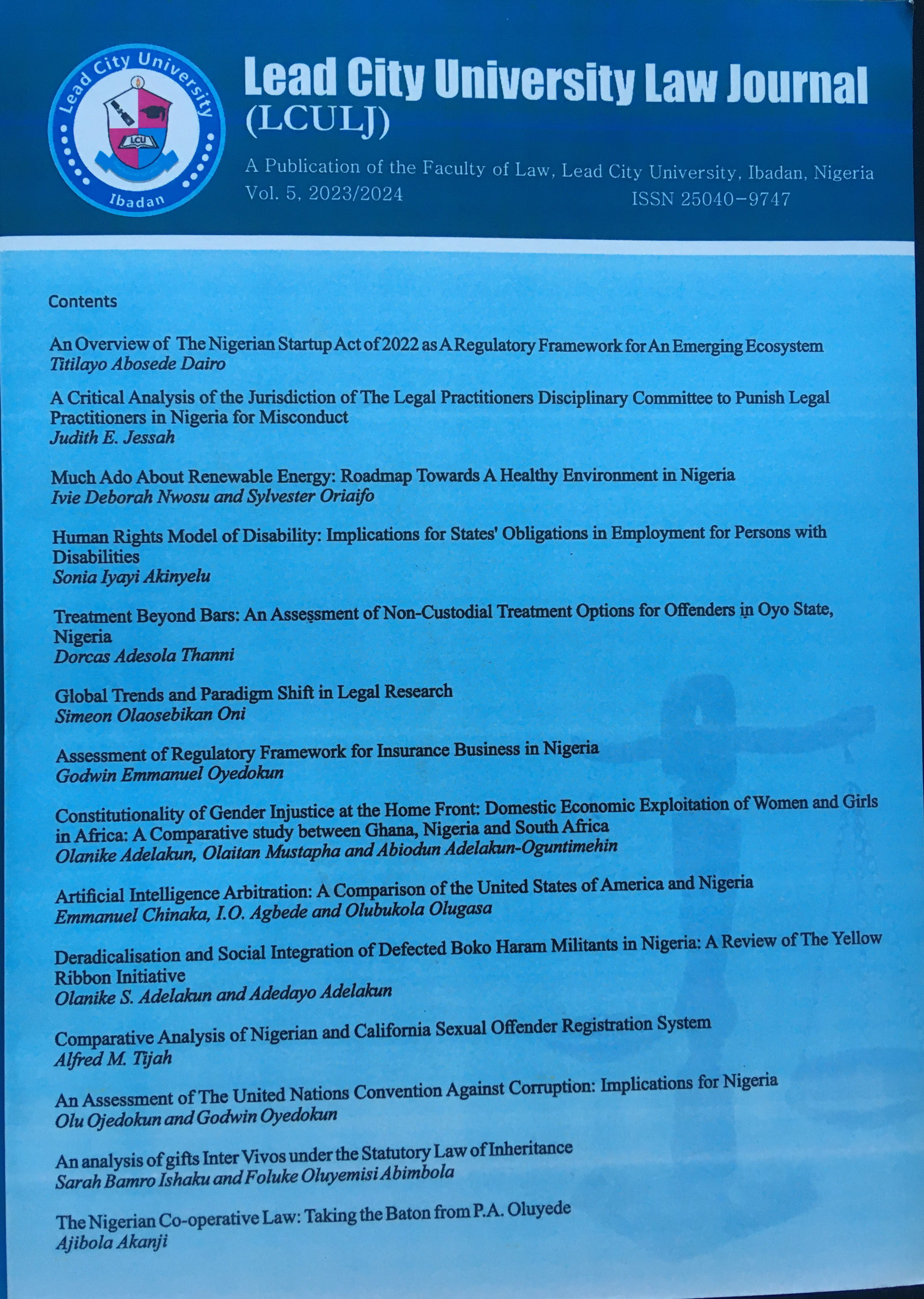Constitutionality of Gender Injustice at the Home Front: Domestic Economic Exploitation of Women and Girls in Africa: A Comparative study between Ghana, Nigeria and South Africa
Keywords:
Constitution, Africa, gender injustice, domestic exploitation, women, girls, economic exploitation.Abstract
In many traditional African cultures, gendered roles exist to subdue women and girls to manage
the household chores. With modernisation and economic realisation, where many women have to
combine work with household chores while girls have to combine school with the chores or stay
out of school to fulfil their ‘domestic’ roles. The effect of the roles in the lives of women is mainly
visible in terms of slow progress economically when compared with their male counterparts.
Unfortunately, the domestic work being carried out by women and girls in Africa is not monetised,
as compared with what obtains in India, and does not contribute to the nation’s gross domestic
product (GDP). In essence, these works go unaccounted for domestically. When the work is
compared to what is being done by paid domestic helps, it is apparent that a lot of economic
activities are not accounted for within households. This article adopts a socio-legal method, which
seeks to combine the legal and institutional frameworks with the existing available data, to
investigate the constitutional protection of women and girls from domestic economic exploitation.
The article relies on secondary data on the remuneration of domestic helps in select African
countries and the nature of work they carry out as well as literature on uncompensated domestic
chores carried out by an average woman and girl in the same country. The article concludes by
recommending constitutional protection from domestic economic exploitation as a way of
contributing to gender equality.

